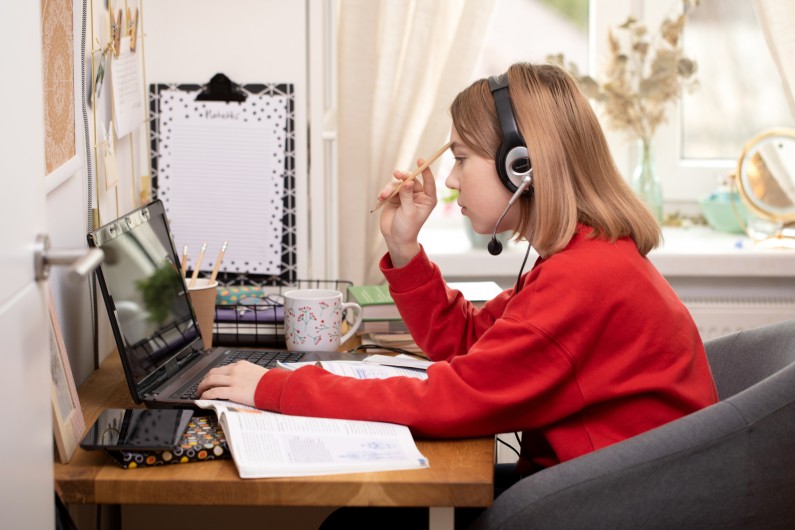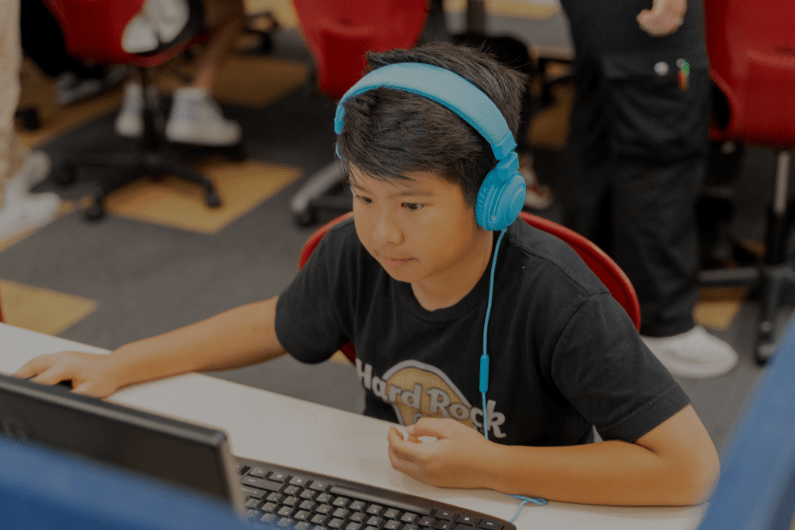Building positive study habits outside of the classroom

Has your child’s schooling become mainly online, amidst the coronavirus outbreak? Well, if they have, you certainly aren’t alone.
While at first this new way of learning within a classroom may feel unsettling and unfamiliar, there are a range of advantages to highlight that can ensure your child is getting the most out of this new way of learning. Here are 5 Do’s and Don’ts to set your family on the path of an enjoyable and productive education.
DO’s
1. Create a study schedule
The temptation to procrastinate can be hard to overcome, especially with the novelty of being within an environment that would normally signal ‘after school’ and play time.
By creating a colourful lesson plan together and making it visible (the fridge is a popular place for many), the whole family can ensure that you are not losing track of the allocated time and children are held accountable for achieving the outlined tasks.
2. Start the day with a morning routine
As news emerges daily around the latest COVID-19 developments, the morning time can often be rife with distracting headlines that bring anxiety to the day. For younger children or teens, they may slip into a habit of sleeping in, now that they do not need to physically show up for the first school bell.
Guide your child to stay disciplined by waking at the same time each morning, so that their mind gets into the habit of being alert and productive during key hours or the day … without leaving catch-up work for night time which can lead to unsettled sleep and difficulty winding down.
3. Use exercise as study breaks
Plenty of people get ‘cabin fever’ when studying within the same environment without variety. Fresh air can bring a fresh perspective and a flood of oxygen to bring a new wave of alertness and positivity to how you are approaching your tasks.
Commit to working in bursts, knowing attention spans are shorter than we may like to think. Reward focus given by your child with a 30 minute sport, a trip to the local dairy or milk bar, or pottering around together in the backyard with pets.
DON’TS
1. DON’T be afraid to use resources to ask questions
Much of the technology and resources available to students as part of online studying is dedicated to facilitating teacher-student and tutoring interaction. Asking questions of teachers is the place where students form invaluable parts of their knowledge through scientific-style inquiry, and is essential for student engagement. Therefore it is important as a student to know what resources are available to you to connect with teachers.
Do you have a chat service such as whats-app, an online discussion board, video-chat or just standard email. It is also important that you are not afraid to use the resources at your disposal. In the same way you might want to ask a question in front of your entire class, using the class discussion board can be public and daunting. But in the same way you might quietly consult your teacher after class, this can be substituted with a more private email with your question.
2. DON’T get distracted on your computer
As a general rule, it is important that you take the same approach to online learning that you would in-class. This means that you should not have anything going on on your computer that is not study related. Do not ‘just check’ social media, sports scores or anything like that, as this will inevitably lead to procrastination. While some people like listening to music while studying, do not spend long skipping songs and deciding what to listen to, as this will also inevitably lead to distraction and procrastination.
Plenty of students also fall into the trap of trying to multitask, such as watching a basketball game at the same time as studying. This is proven to be ineffective, and what knowledge you try to absorb simply won’t go in. We are sorry to say that Lebron James is not a great study partner. If you struggle with staying on task while on your computer, there is self-control software you can download onto your computer which will let you voluntarily restrict your access to certain sites during certain hours of the day.
3. DON’T look at your phone
On a similar theme, one main way students get distracted is by their phone. Just because you might not have a teacher watching what else you may be doing behind the scenes, this does not mean you should be looking at your phone or texting. We recommend that you turn your phone off, and hide it completely out of sight and reach, in order that you are not tempted to look at it or use it. Remember, there will be time later to check Instagram or message your friends, but it should not be while you are trying to study.



